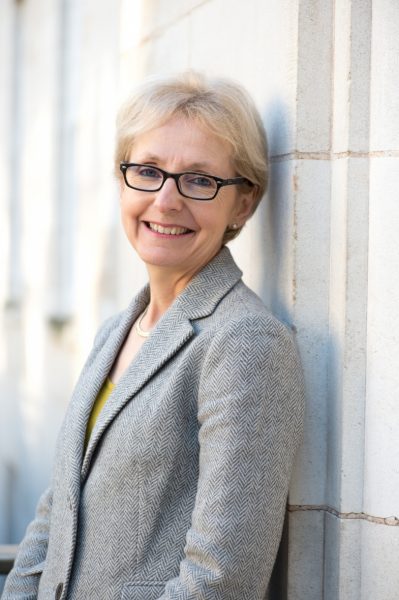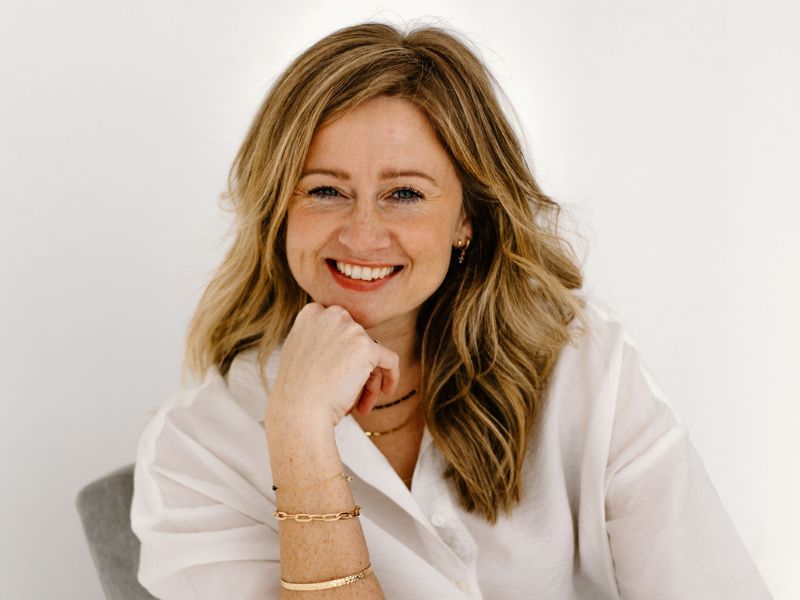 Professor Dame Jessica Corner is Pro Vice-Chancellor (Research and Knowledge Exchange) at the University of Nottingham.
Professor Dame Jessica Corner is Pro Vice-Chancellor (Research and Knowledge Exchange) at the University of Nottingham.
Formerly a cancer and palliative care nurse, Jessica has worked her way up the career ladder in academia and is now revising and reinvigorating the University’s approach to ‘business engagement’ with the launch of a new Knowledge Exchange and Impact Strategy in the 2019-20 academic year.
Tell us a bit about yourself, background and your current role.
I am Pro-Vice-Chancellor (Research & Knowledge Exchange) at the University of Nottingham, a role I’ve held since 2016, and Professor of Cancer and Supportive Care. I have strategic responsibility for the University’s £560 million portfolio and research undertaken by over 3,000 academics and researchers across all subjects and disciplines, as well as our links with business and how we commercialise discoveries and technologies. I originally trained as a nurse and was one of the first students to graduate with a degree in nursing from the University of London, going on to specialise in cancer nursing at the Royal Marsden Hospital. I was Director of the Centre of Cancer and Palliative Care Studies and Deputy Dean (Nursing) at the Institute of Cancer Research at the Royal Marsden for 12 years, and was the first nurse to be appointed to a Chair at the Institute. I then joined the University of Southampton in 2002. In 2005 I was seconded to Macmillan Cancer Support to work as Director of Improving Cancer Services, returning to Southampton in 2008 to become Dean of the Faculty of Health Sciences. Today, my role is leading the University of Nottingham’s bold new Research, and Knowledge Exchange and Impact strategies.
Did you ever sit down and plan your career?
No, my career has developed through an extraordinary series of unexpected and wonderful opportunities that have come along. Many of these opportunities have been a simple case of saying ‘yes’ or ‘no’ to, but I’ve mostly said ‘yes’. Sometimes decisions have been risky, ‘fork in the road’ type moments. For example, when I was a cancer nurse at the Royal Marsden Hospital I was approached by Kings College London, where I did my degree, to move into a research role and I ended up doing my PhD there. And when I was lecturing at Kings I was asked to take up a role at the Institute of Cancer Research setting up a new research centre. Friends and colleagues advised me not to go, but I did, and the knowledge and skills I developed there have taken me to where I am today.
Have you faced any challenges along the way?
Yes, I was one of too few female academics at the Institute of Cancer Research, the only one at my level and the only one in my background at the time. I was trailblazing alone during that period of my career. Whilst I obviously now hold a senior position within a leading university, I am only too aware of the parallels of female under-representation in leadership roles in Higher Education. It is a significant issue – the pipeline is the main problem, but also confidence, experience and unconscious bias – and some universities are doing better than others at addressing it. A big part of my role at the University of Nottingham is supporting female colleagues who are coming up behind me.
What has been your biggest achievement to date?
Well, receiving a letter from the Cabinet Office telling me that I had been appointed a Dame Commander of the Order of the British Empire (DBE) in the Queen’s Birthday Honours List, was incredible. But it was what the DBE was recognising that is my biggest achievement. The work I did changed the aspects of care for people with cancer, such as the way the NHS thinks about cancer after people have had their treatment. Now care extends to post-cancer and helping people get their lives back – aftercare for cancer survivors to support long-term health outcomes – the NHS wasn’t doing that before.
What one thing do you believe has been a major factor in you achieving success?
It’s that risk-taking element, taking opportunities. You really don’t know what possibilities will open up by going down a particular route. For example, my decision to combine cancer care work with nursing was the platform for the research I then did on cancer and end-of-life care.
How do you feel about mentoring? Have you mentored anyone or are you someone’s mentee?
I am firmly committed to the mentoring of others. Internally at the University, I mentor early-career staff – and lots of women – to support their aspirations and development in areas such as developing their research, networking, and securing opportunities drawing on their expertise.
If you could change one thing to accelerate the pace of change for gender parity, what would it be?
For there to be gender balance all the time and everywhere – and specifically making sure that events, committees and panels are not dominated by men. We need to create diversity in the room, not just through white women but having more representation from BAME women and those from other backgrounds. This sends out a positive message to women. The other aspect is data. Ensuring that the way we do research, the questions we ask in research, and ultimately what it leads to, is influenced by Equality, Diversity and Inclusivity characteristics.
If you could give one piece of advice to your younger self what would it be?
Honestly, I think it would be to tell myself ‘no need to work quite so hard’. I like to think my daughters will achieve all sorts of things, but perhaps take it a little easier.
What is your next challenge and what are you hoping to achieve in the future?
Through the University’s new Knowledge Exchange and Impact Strategy we want to deliver even more social and economic benefit through our work, and I want to accelerate that agenda. As part of this, we will be doing even more to support women entrepreneurs. We will work with them to think about all aspects and stages of setting up a business. As a university we have a remarkable track of setting up spin-out companies from academic research, and a number of these are led by women. I am passionate about championing this agenda to make sure we are making progress.








